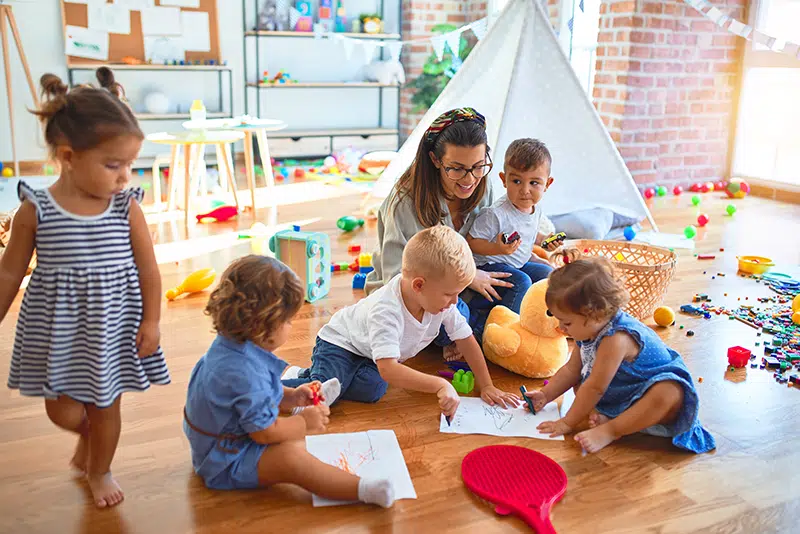The Role of Play in Early Childhood Education: Learning Through Fun
The Power of Play in Early Childhood Education
In the world of early childhood education, play is not just a pastime; it’s a powerful tool for learning and development. From building blocks to imaginative role-play, play-based activities engage children’s minds, bodies, and emotions, laying the foundation for future academic success and lifelong learning. In this article, we’ll explore the essential role of play in early childhood education and how it fosters holistic development in young learners.

The Nature of Play
Play is a natural and instinctive behavior that children engage in from infancy. It encompasses a wide range of activities, including physical play, constructive play, pretend play, and cooperative play. Through play, children explore their environment, experiment with new ideas, and make sense of the world around them. Play is inherently enjoyable and intrinsically motivated, making it an ideal medium for learning and discovery.
Learning Through Play
Play-based learning allows children to actively construct knowledge and skills through hands-on exploration and experimentation. Whether stacking blocks, creating art, or engaging in dramatic play, children develop a multitude of cognitive, social, emotional, and physical abilities. Play promotes critical thinking, problem-solving, creativity, communication, collaboration, and self-regulation—all essential skills for success in school and beyond.
The Benefits of Play-Based Education
Holistic Development
Play supports the holistic development of children, addressing their cognitive, social, emotional, and physical needs in an integrated manner. Through play, children develop skills in multiple domains simultaneously, fostering well-rounded growth and readiness for future learning.Intrinsic Motivation
Play is inherently motivating, capturing children’s interest and curiosity. Unlike rote learning or drill-and-practice activities, play-based learning taps into children’s natural inclination to explore, discover, and learn through hands-on experiences.
Engagement and Enjoyment
Play-based activities are enjoyable and engaging, making learning a fun and rewarding experience for children. When children are actively involved and invested in their play, they are more likely to retain information, make connections, and apply their learning in meaningful ways.
Socialization and Communication
Play provides opportunities for children to interact with peers, practice social skills, and learn to communicate effectively. Through collaborative play, children learn to negotiate, share, take turns, and resolve conflicts—essential skills for building positive relationships and functioning in a social environment.
Creativity and Imagination
Play encourages creativity, imagination, and divergent thinking as children explore new ideas, roles, and scenarios. Pretend play, in particular, allows children to experiment with different roles, perspectives, and scenarios, fostering imaginative thinking and storytelling skills.
Implementing Play-Based Approaches
Rich Learning Environments
Create environments that are rich in materials, resources, and opportunities for open-ended play. Offer a variety of play materials, such as blocks, art supplies, dramatic play props, and sensory materials, to stimulate children’s creativity and exploration.
Supportive Adult Guidance
Provide scaffolding and support to enhance children’s play experiences. Offer open-ended questions, prompts, and extensions to encourage deeper exploration and learning. Observe children’s play to identify their interests, strengths, and areas for growth, and tailor learning experiences accordingly.
Integration with Curriculum
Integrate play-based activities into the curriculum across all subject areas, from literacy and math to science and social studies. Use play as a vehicle for teaching and reinforcing academic concepts, allowing children to learn through hands-on exploration and discovery.
Flexible and Child-Centered Approach
Embrace a flexible and child-centered approach that honors children’s interests, preferences, and developmental needs. Allow children to take the lead in their play experiences, with educators serving as facilitators and co-learners in the process.
In early childhood education, play is far more than just recreation; it’s a fundamental aspect of learning and development. Play-based approaches offer a rich and engaging way for children to explore, discover, and make sense of the world around them. By providing opportunities for play-based learning, educators can support children’s holistic development, foster a love of learning, and lay the groundwork for lifelong success. Play on, little learners—your world of discovery awaits!
This post is also available in: Français (French)